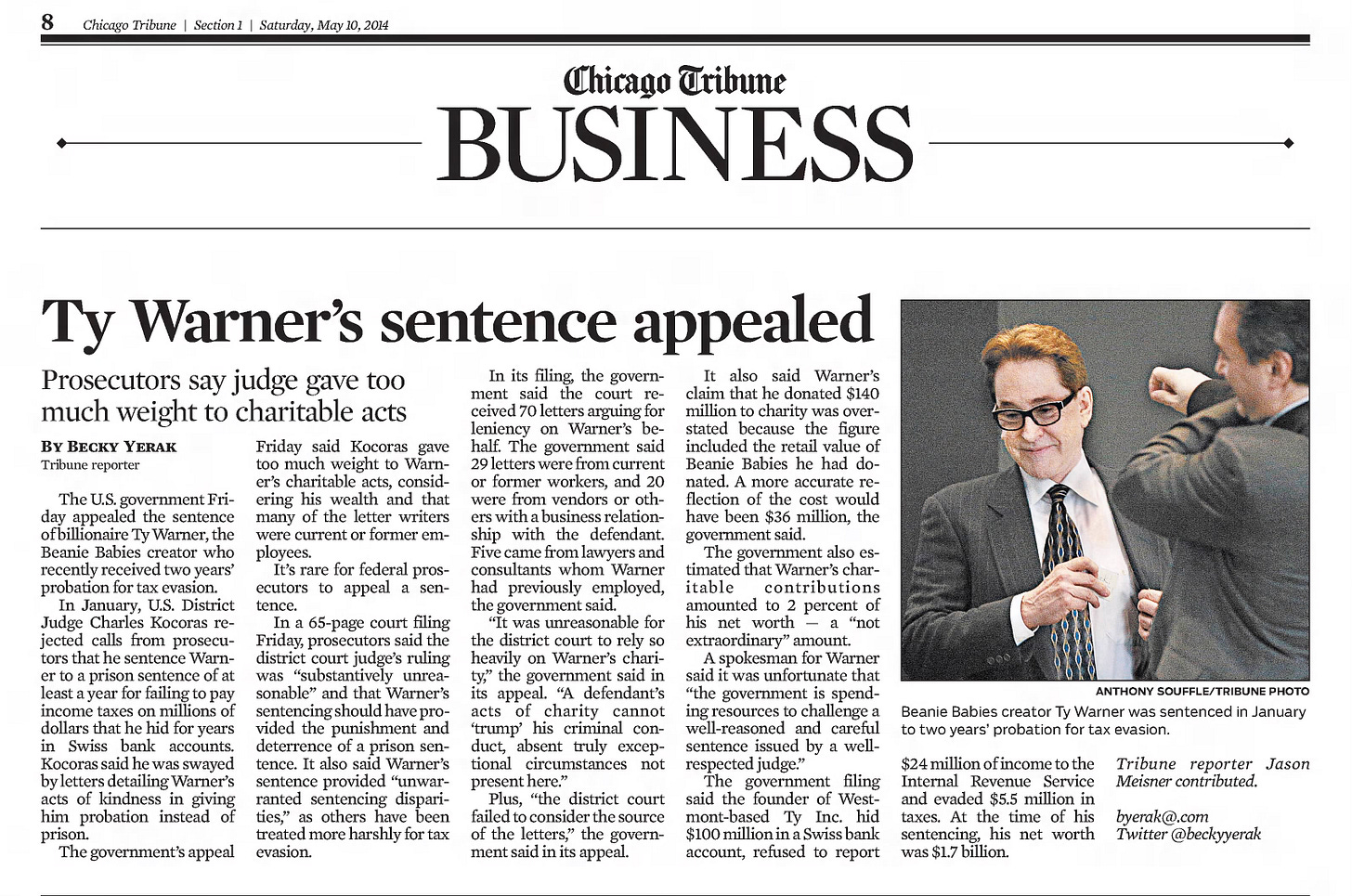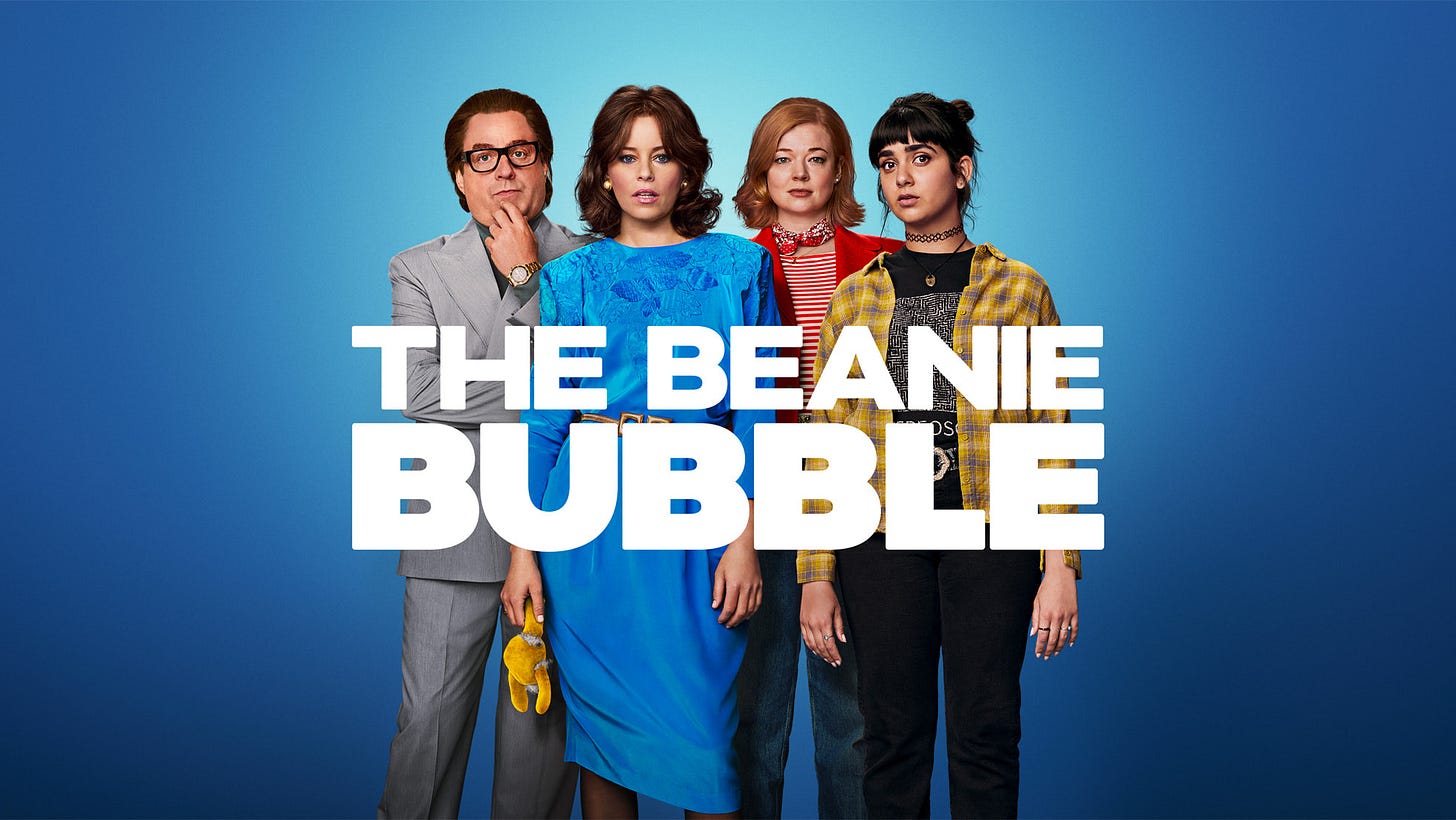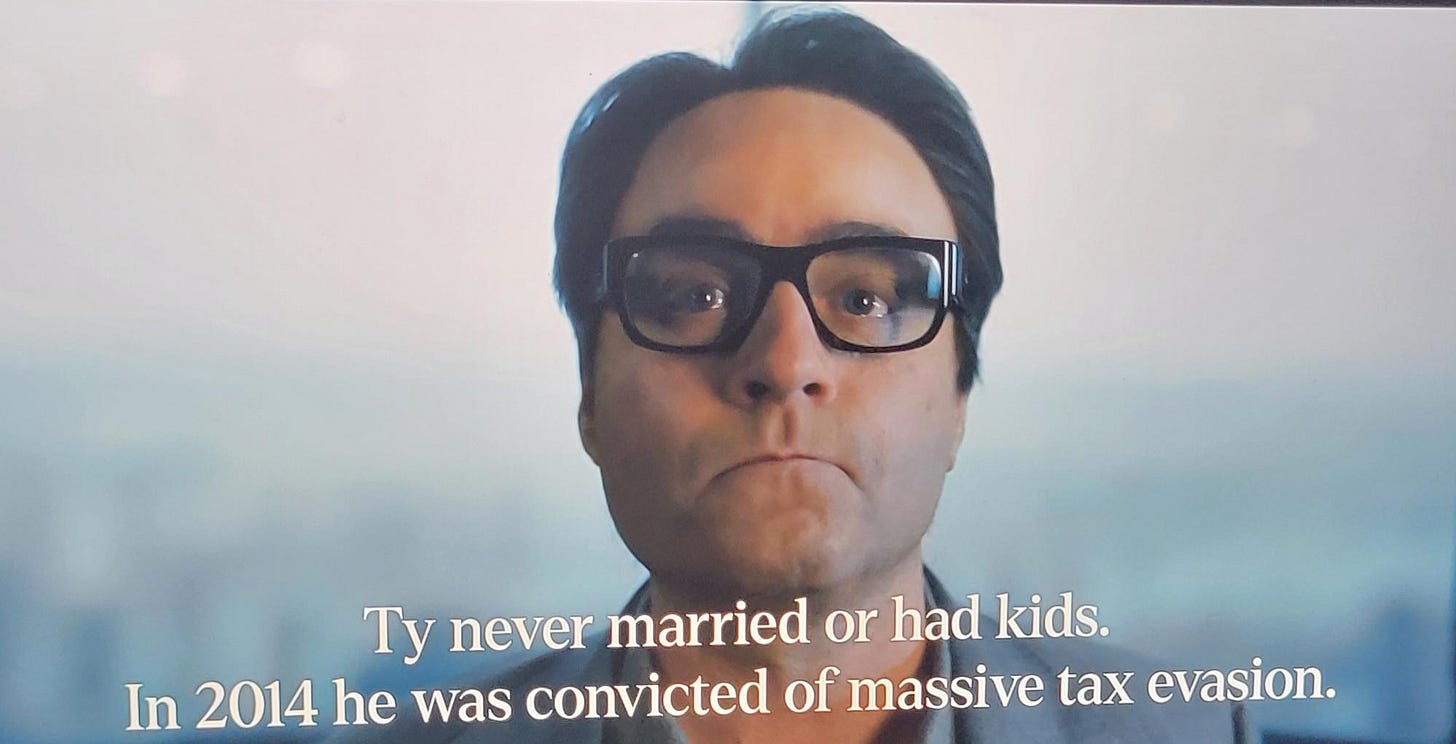Know a Good Deed
Beanie Babies founder Ty Warner recently resurfaced with his first media interview in decades. It sparked memories of my coverage of one of his many charitable gestures that helped him avoid prison.
“No good deed shall go unpunished.”
Over 30 years ago, my newspaper editor, Mike Bailey, introduced me to that cynical (yet often true) saying.
It stuck with me, obviously—even more so after an impromptu private tour of New York Yankees owner George Steinbrenner’s office at Yankee Stadium in 2001.1 There resting on a sofa was a pillow with the same phrase embroidered on it.
But the recent media surfacing of Ty Warner, who became a billionaire through the Beanie Babies craze of the 1990s, brings to mind another truism:
Know a good deed can help you escape punishment.
In Warner’s case, his generosity helped keep him out of the slammer about a decade ago. When it came to determining his fate for tax evasion—Warner had stashed over $100 million in off-shore accounts—the judge cited his extensive philanthropy in handing down a sentence of two years’ probation and 500 hours of community service.
Though prosecutors appealed the sentence as being too lenient (see below), Warner’s sentence stood.
Some 15 years earlier, acting on a tip from a Westmont Park District employee, I had reported for the Chicago Tribune on one such charitable gesture: Warner’s $3 million donation for a park that was named—spoiler alert!—Ty Warner Park.
As the Park Board president wryly told me, “We’ll name a park after anybody who will contribute that kind of money to us.”
As a journalist, even if you have only a 0.00001% chance of getting someone to agree to an interview, you make the effort anyway. Such was my mindset when I dialed up Ty Inc. back then.
I had no illusions that Warner was waiting by his phone: like his company’s marketing tactic of creating scarcity for various models of the plush Beanie Babies toy line, Warner by then had already made himself scarce.2

Here’s how I chronicled my long-shot attempt: “Warner was out of town and could not be reached for comment Monday and calls to company headquarters were not returned.”
However, the recent Apple TV+ release of The Beanie Bubble, based on the groundbreaking global success of Beanie Babies, finally flushed him out. Last week, he spoke with the New York Post, which headlined the story “Beanie Babies billionaire Ty Warner breaks decades of silence after harsh portrayal in ‘The Beanie Bubble’.”
The exclusive opened with these words:
Ty Warner, the reclusive billionaire who founded Beanie Babies, breaks his silence in the wake of the harsh portrayal of the mogul in the recent movie, “The Beanie Bubble.” Warner, who has not done a media interview since the 1990s, takes issue with how he was depicted and wishes a more handsome actor than Zach Galifianakis was cast to play him. The film credits former workers — based on Patricia Roche and Lina Trivedi — for fueling the craze for the plush toy.
You can read the entire Q & A here:
I watched the movie a few nights ago and “takes issue with how he was depicted” qualifies as the understatement of the century. The movie tears Warner to shreds—he comes across mostly as petty, spiteful, sneaky, needy, and unfaithful. Then, there’s this one last jab in the film’s closing moments:
In the New York Post interview, Warner described the movie as “90% made up.” He also described himself as “creative, collaborative, competitive, critical, analytical, disciplined, focused, perfectionist, driven, caring, kind, sincere.”
The truth is more complicated than the movie’s portrayal3 and Warner’s self-assessment, of course. He’s done bad things. But there’s no doubting that the philanthropy he’s waged over the years has done enormous good, with support of Maui wildfire survivors the latest instance of his $300 million-plus of charity.
Seems to me that a documentary that includes Warner’s participation, so there is more knowledge of his good deeds, would be a fitting counter-narrative to the beating his legacy receives in The Beanie Bubble. Or perhaps he is open to a biography?
Hey, Ty, it’s not too late to give me a call!4
My Yankee Stadium tour came during a visit with former Major League pitcher Steve Trout, with whom I was co-hosting a low-wattage radio show, The Rainbow Hour, at the time. Steve played briefly for the Yankees in 1987 but is better known for his 10 years pitching for Chicago’s two baseball teams, the White Sox and Cubs. Steinbrenner, who passed away in 2010, was not around during our visit.
In fact, the 79-year-old is routinely referred to in media reports as not just a billionaire, but a “reclusive billionaire.”
To his credit, Warner sent a rather classy statement to Insider (not related to The Inside Edge) for its story about the movie and where the largely fictional piece varies from the facts:
"I applaud the filmmakers for capturing the unprecedented energy and excitement – though not the facts – surrounding the original release of Beanie Babies 30 years ago. The movie is, by its own admission, partly fiction. But, like the filmmakers, I am in the business of dreams, and I admire their creative spirit. To the fans and collectors of Beanie Babies who have been there for the last three decades, thank you for all the love you have shown."
Insider also noted that Ty Inc. gave away free Beanie Babies at screenings of The Beanie Bubble at 54 theaters in the United States and United Kingdom to celebrate the 30th anniversary of Beanie Babies.






